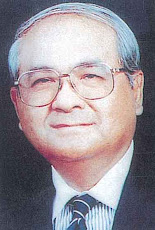INTERNATIONAL COMPETITION: The world is already a global village with economic boundaries crumbling
WITH globalisation and internationalisation, countries are no longer spared of pressures from many quarters to open up their economies and be increasingly exposed to demands for surrendering their sovereignty to manage their economic affairs.
The last round of trade negotiations, otherwise called the Uruguay Round, led to the demise of the General Agreement on Tariffs and Trade (GATT), which dealt with trade in goods, and in its place the World Trade Organisation (WTO) established and brought trade in services into its fold. Efforts were also in place bringing in intellectual property (TRIP) and investments (TRIM) under the WTO fold.
Subsequent post Uruguay Round efforts to further improve multilateral processes, beginning in Seattle, and later in Doha, stalled. In place of multilateralism, bilateral pressures picked up speed and free trade initiatives came onto the scene subjecting small economies to the full onslaught of economic power of the large economies.
Now another form of regional partnership called the Trans-Pacific Partnership (TPP) Agreement has emerged, to bring several economies in the region into another regional arrangement with its own ways of addressing disputes between contracting parties, even proposing the need to adjudicate disputes on investment incentives.
Thus the statement that countries are no longer at war in a military sense but are having skirmishes in the trade arena, is true. The concern by the American leaders of China's exchange rate policy is but one of these.
Nearer to home is our commitment towards Asean economic integration, the Asean Economic Community (AEC), which is slated to come into force by 2015. The varying economic stages within Asean should not delay the formation of AEC and our efforts need to be focused on this more urgent matter. Certainly what happened in the Eurozone, the Euro in particular, should give us more insights into the challenges and trappings of regional integration.
The AEC should be the corridor where our diplomats and trade negotiators should be busier, rather than responding to pressure from the majors whose real problem is to effectively manage their own economies.
We must ensure AEC materialises to showcase to the world that our brand of economic grouping is working and impactful. Asean has come a long way and it is high time we consolidated it even further. AEC is quite a natural progression after our CEPT, AFTA, AFAS, and after the opening up of neighbouring countries, such as Myanmar and the coming of the latter, into another potential centre for investments into the region.
Malaysia would stand to gain from AEC given its stage of economic growth and development and the public policies that are supportive of the private sector as the engine of economic growth.
As any trade negotiation would develop, and TPP included, the issue of more liberalisation is uppermost and the issue of how to address disputes under the new proposed grouping will always be an important agenda for negotiation.
Our negotiators must be prepared with country positions after doing the calculations of cost and benefit of joining the partnership. Have we done so? Hopefully we have.
Our culture for in depth economic and policy analysis has somewhat taken a back seat preferring only the importance of the bottom line. The private sector with all the subsidies it has enjoyed often does not find it quite necessary to invest in policy related researches and R&D. This is where we differ from the developed west where policy related researches and R&D are largely funded by the industry for the benefit of the whole economy.
In managing all these pressures and expectations, our economic players and policy makers will have to be prepared for liberalisation. We have to build our state of readiness for a more liberal economic environment. It is almost a fact of economic life that the world is already a "global village" with economic boundaries crumbling.
Thus the mindset, of thinking global and acting local, must be in all of us. To be so contented with the domestic market and with the strong support of the public sector available here, should be a mindset of the past.
To be sure, others are watching us to contribute to the global process of liberalisation. The simple reason is that we have benefited from their capital investment flows and markets for our products.
Thus Malaysian industries and traders should always be prepared for competition from external players and operators, and to work with their Asean counterparts to become global players to face international competition. The need to consolidate and to grow into regional and global player is a must now.
The TPP is a wake-up call to our industries to stay efficient and competitive as well as highly productive. If nations with limited resources can find niches in this competitive world, Malaysia too, can.
With efficient utilisation of our natural and human resources by our industries as well as operating in a non-subsidised environment, using the boundary pricing policy as much as possible, may be the formula for long term survival of our industries. Additionally, we must be prepared for our protection walls to be increasingly brought down in due course.
Read more: Be ready for trade liberalisation - Columnist - New Straits Times http://www.nst.com.my/opinion/columnist/be-ready-for-trade-liberalisation-1.347804#ixzz2dhLcuQdG






















